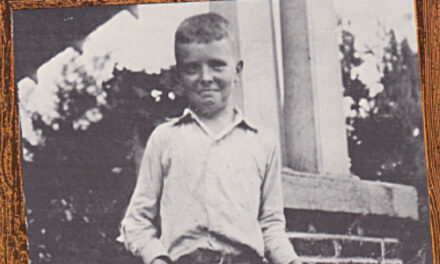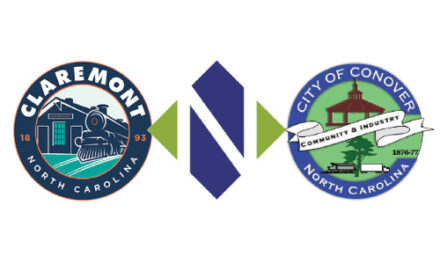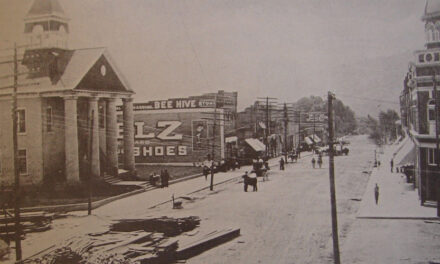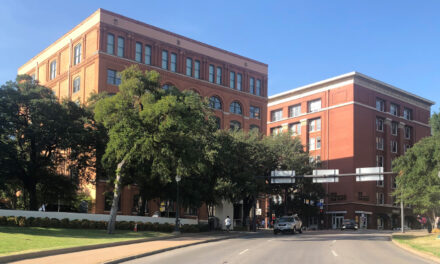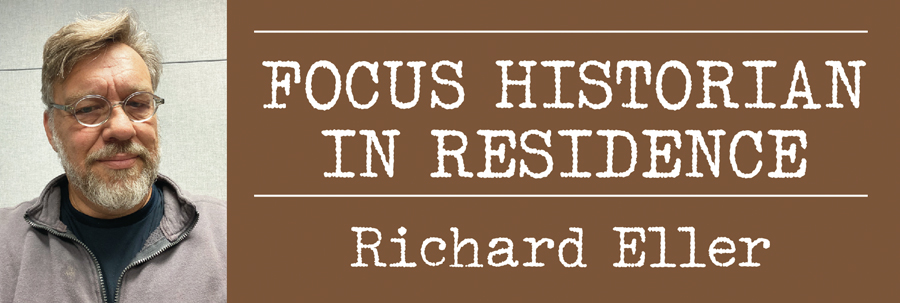
Barbershop Hill must have been a lively place. Sherrie Hartsoe Sigmon excerpts these stories from her book, Weaving the Heart Threads of a Mill Village, Rhodhiss, North Carolina. – Richard Eller
In addition to the Company Store another business flourished in Rhodhiss during the early 1900s. The mill company provided a two-story house for a barbershop where customers could get a haircut, shave, or shower.
The barbershop was located at the bottom of present-day Magnolia Street, but that was when the road was in front of the old post office/company store building. Finn Simmons said, “It was on the hill practically over the branch” and the area was referred to as Barbershop Hill. In the building’s upstairs a barber cut hair for a quarter or gave shaves for 15 cents. Fletcher Lutz said that Astor Peeler gave him his first haircut while Jack Edwards indicated that his first barber was Joe Lail. Other barbers mentioned were Mr. Roseman, Cletus Hunsucker, and Everett Roberts. Women also had to visit the barber shop for a haircut because beauty shoppes did not exist in town till the mid twentieth century. Leona Kirby Hunsucker met her husband Clete when she went to get a haircut. Leona described the shop as a “fine establish-ment. It had cabinets with marble tops and big mirrors, and the barber chairs were big cap-tains’ chairs.” Another service that the shop offered was shoeshines. Finn Simmons said that he shined shoes for Clete Hunsucker and Joe Lail.
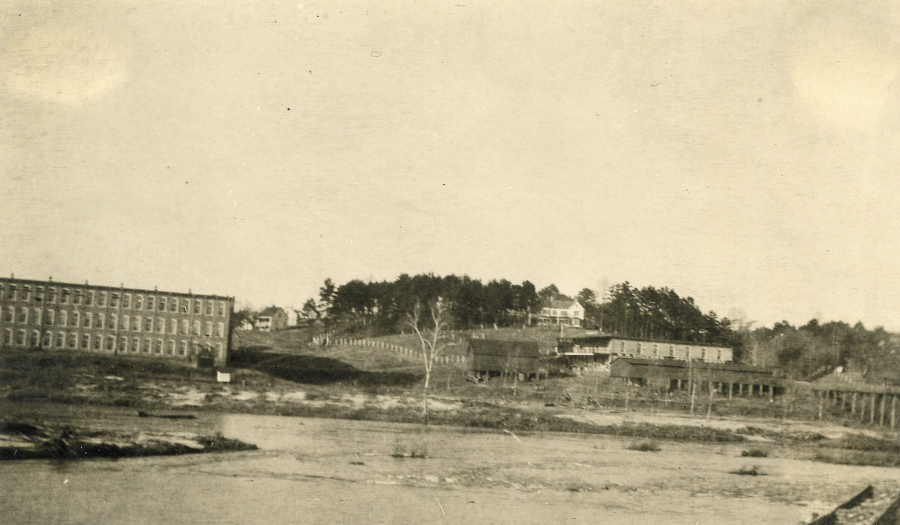
Photo: Superintendent’s Hill and house in Rhodhiss from a distance. Barbershop Hill is to the right.
Housing for upper management had indoor bathrooms, but plumbing was not installed within the smaller mill houses until 1949. Hans Townsend and Shelley Teague said that men could take showers in the downstairs of the barbershop for a cost of a quarter, and a towel and soap were provided. The five shower stalls were busy on Saturdays because that day was date night. Finn Simmons commented, “All the ball players and anybody else that wanted took a shower there.” No one mentioned if the ladies were allowed to shower. Edna Laney Stilwell ex-plained that women bathed in horse troughs or metal washtubs. The times were difficult for the hard-working citizens of Rhodhiss.
The barbershop ceased to exist after Pacific Mills deemed it necessary to change the road in the early 1950s. Many people commented that the barbershop mysteriously burned, but no one knew the true story until Fred Elmore confessed. The company thought that it would take too long to tear it down, so they burned it on the sly. Fred declared, “The mill com-pany wanted to get rid of the old barbershop, so the shop men set it on fire. It was kept hush hush. Then Will McGuire saw it and put it out. We set it on fire again, and Will put it out again. The last time though he didn’t have a chance.” The barbershop then moved to Joe Church’s store at the lower end of Duke Street where Clyde Keller and Everett Roberts served clients. Since the millhouses had indoor plumbing, public showers were no longer needed.
Rhodhiss citizens patronized the big and small business in town. The customers were happy to receive the services that the barbershop provided.



